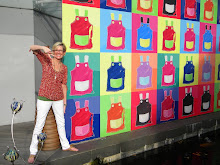Luke
10:38-42
This week’s
Gospel lesson is the story of two sisters:
Mary, who “sat at the Lord’s feet” while Martha “is distracted by her many
tasks.” This story has so many
possibilities. Where shall we start?
Let’s start
with a little context around the message of hospitality. For the past few weeks, we’ve learned much
about hospitality from the readings in Luke.
In Luke 7, Simon was admonished for his lack of hospitality when welcoming
Jesus. In Luke 9, Jesus warns his
followers that hospitality will be in short supply: the Son of Man has nowhere to lay his head.
In Luke 10, Jesus sends out the 70 with instructions to take nothing and to put
their faith and future in the power given them by God and the hospitality of
strangers. In that same chapter, Jesus gives us the Good Samaritan, the epitome
of hospitality which extends beyond our front door and into the vastness of all
creation.
Within that
context, let’s move into these passages.
First, Martha welcomes Jesus into her home – good hospitality,
right? Well, it started out that way. And then Martha ignores Jesus, jumping into
her to-do list. Following the social
conventions of her time, I’m sure Martha is preparing things in a way that
would make Martha Stewart proud. Best
foods, finest pottery, oldest wine, richest linens. Martha is busy, busy, busy.
Are we the
same? Busy, busy, busy with the ‘social
conventions’ of serving Jesus - church attendance, personal devotions,
nitpicking rites and rituals, splitting hairs over creeds and theology – that we
fail to “be” at the feet of Jesus. In
all that pomp and circumstance of worship and following and doing our religion do
we forget the Guest? Is Jesus overlooked
in all the activity?
As these routine
never-ending tasks pile on, Martha becomes angrier, angrier, angrier. Why is Mary not helping? It happens.
When we get so caught up with the “doing,” and lose the “being,” it’s
easy to get _________ (fill in the blank – angry, frustrated, disillusioned,
?). So then what is it? Being is better
than doing? But somehow that doesn’t
feel right. Surely Jesus doesn’t want us
just sitting around? Let’s dig a little deeper.
Jesus goes
on to say that Mary has chosen the better part.
What has she chosen? Maybe Jesus does
mean “being” is more important than “doing.” Or maybe not.
We know from the earthly life of Jesus that he is not a pure contemplative
and does not exhort his followers to take on such a life. Jesus is on the move, healing, teaching,
connecting. He is all about ‘doing.’ We run into a roadblock if we try to balance “being”
and “doing.” A little of this, a little
of that. Nope. Then we end up in Martha’s shoes. One always pushes out the other and we run in
tiny, crazy, little circles. It’s like
seeing the guy on the corner with the “Hot
and Hungry – Please Help” sign and thinking about how we should stop and offer
help and hope, but if we do, we’ll be late to the Community Outreach and Feed
the Hungry committee meeting. So we’ll just pray for him later. Trying to separate “being” and “doing” just
doesn’t hold up.
So forget
balance. Rather, our “being” and “doing”
are sequential AND simultaneous. Sequential AND simultaneous? Crazy, hey?
Kind of like Jesus being fully human AND fully divine. Like us being sinners AND saints. Sequential in that the “being” comes first – that’s
the best part that Mary chose. Know our
place. We are at the feet of Jesus. Everything has been done for us. Then, from that joyous place of overflowing
gratitude, our “doing” pours forth in our hospitality toward our family,
friends, neighbors, and strangers. Being comes before doing, and being comes
through doing, and doing comes through being.
I think
Martha has chosen that better part as well.
She’s just temporarily forgotten.
Don’t we all? So Jesus gets our
attention, calls us back, to sit at his feet, to be nurtured, to be reminded
that we don’t have to DO anything for him.
He has done it all for us. From
that place of being, our “doing” becomes not a way to impress or please or
placate God. Then when the ‘doing’
begins, and the hospitality is offered, Jesus will be right there at the heart
of it, his love and grace the foundation upon which all “doing” is sacred, a
pleasant offering to the Lord, an acknowledgement that all we have is a gift that
has been given to be shared.
As our dear Martin writes, “God doesn’t need your good works, but your neighbor does.” May our “doing” of those good works be light duty as our “being” rests at the feet of Jesus.

No comments:
Post a Comment